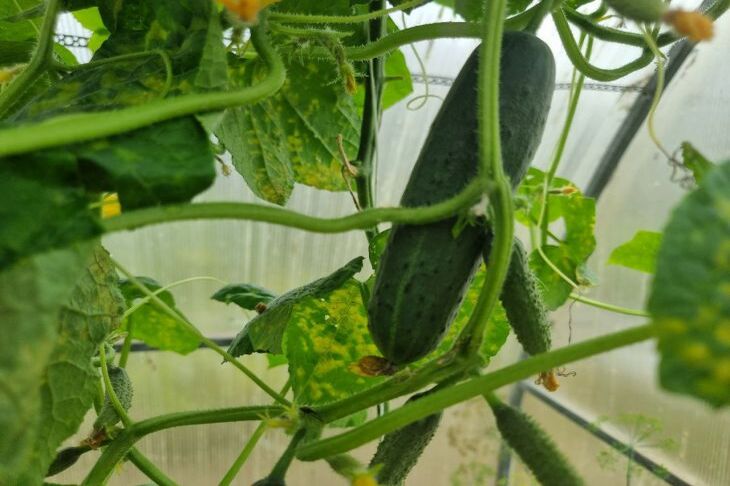Why cucumbers have only empty flowers and almost no ovaries: just two reasons that are easy to eliminate
Empty flowers are not something bad, superfluous or unnecessary.
These are male flowers, and a bee-pollinated plant needs male flowers.
Pollen grains are formed in them, which serve to pollinate female flowers. Without barren flowers, the ovaries will not turn into fruit. They will simply turn yellow and fall off.
The reason is in the seeds
It often happens that a gardener sows cucumbers, and there are almost no female flowers on them, but the abundance of male ones can overshadow the flowerbed of an enthusiastic gardener. This happens because fresh seeds were sown.
Inside the seed there are enzymes that influence the development of the plant.

The longer the seed lies, the more the enzymes that “tell” the plant to develop itself, rather than putting maximum effort into growing fruit, are destroyed.
If you ask any grandmother in the village, she will say that cucumbers and pumpkins should be sown with seeds that have been stored for at least three years.
Our ancestors did not have the opportunity to discover any enzymes, but they observed plants and noticed this pattern.
By the way, the same applies to melons, watermelons, pumpkins, squashes and other plants of the pumpkin family.
Pinching the top
The second reason for a large number of male flowers is the lack of formation. If the central stem grows actively, but the lateral shoots are poorly developed, there will be few ovaries.
Female flowers are formed on the side shoots. To stimulate their growth, you need to pinch the top of the central stem above the 6th-9th leaf.
Note: Treatment with preparations that stimulate fruit formation will not help, since the causes of the problem are inherent in nature and are not a product of external factors.
Moreover, the opposite effect may occur, because such preparations work to stimulate pollen production. And male flowers are responsible for this.
Finally, it is worth emphasizing once again: everything said above applies only to bee-pollinated varieties and hybrids. Parthenocarpic hybrids do not form male flowers, as they do not need pollination.
However, sometimes such a case does occur. But its cause lies in the genes - it is the result of a mutation.
There is no need to be afraid. A regular cucumber will grow, which will bear fruit just like any bee-pollinated one.
